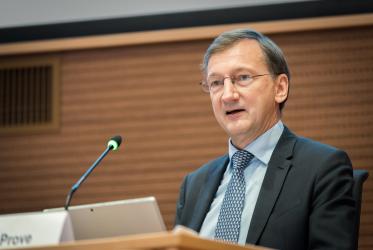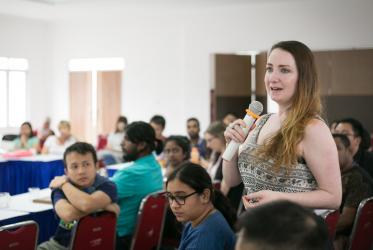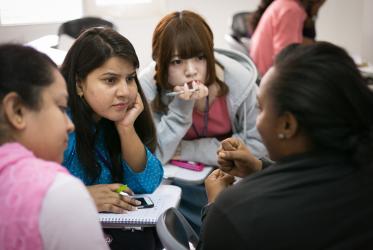Displaying 1 - 20 of 26
The cry of the Papuans in Indonesia
14 November 2019
WCC gravely concerned for West Papua
25 September 2019
“Economy of life” lifted up at special school in Indonesia
22 August 2019
Church in Bali empowers youth to break cycle of poverty
18 March 2019
Unifying faiths in peace and harmony through dialogue
10 April 2018
“I can do things better back home”
30 August 2017





